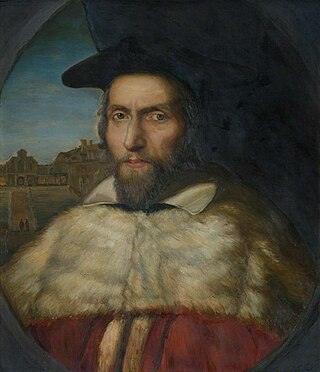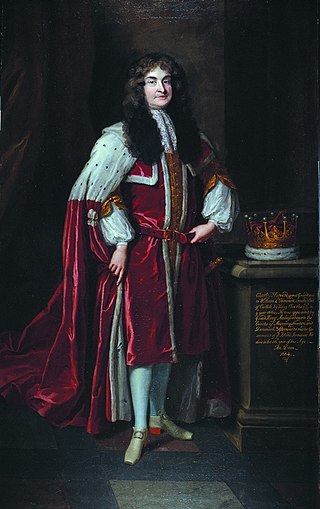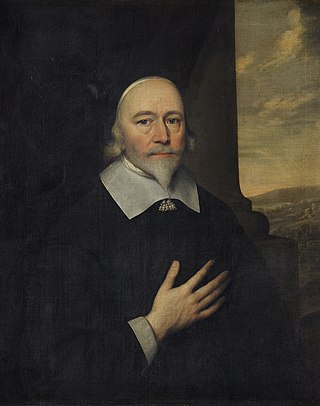
John Cosin was an English churchman.

Richard Neile was an English churchman, bishop successively of six English dioceses, more than any other man, including the Archdiocese of York from 1631 until his death. He was involved in the last burning at the stake for heresy in England, that of the Arian Edward Wightman in 1612.

Charles Howard, 1st Earl of Carlisle was an English military leader and politician who sat in the House of Commons at various times between 1653 and 1660 and was created Earl of Carlisle in 1661.

The Church of St Margaret, Westminster Abbey, is in the grounds of Westminster Abbey on Parliament Square, London, England. It is dedicated to Margaret of Antioch, and forms part of a single World Heritage Site with the Palace of Westminster and Westminster Abbey.

Houghton-le-Spring is a town in the City of Sunderland, Tyne and Wear, North East England which has its recorded origins in Norman times. Historically in County Durham, it is now administered as part of the Tyne and Wear county.

The Savoy Conference of 1661 was a significant liturgical discussion that took place, after the Restoration of Charles II, in an attempt to effect a reconciliation within the Church of England.

Bishop John Hinchliffe DD was an English churchman and college fellow. He was Master of Trinity College, Cambridge, 1768–88, Bishop of Peterborough, 1769–94, and Dean of Durham, 1788–94.
Events from the year 1661 in Ireland.

Joseph Armitage Robinson was a priest in the Church of England and scholar. He was successively Dean of Westminster (1902–1911) and of Wells (1911–1933).

Richard Love (1596–1661) was an English churchman and academic, Master of Corpus Christi College, Cambridge, Lady Margaret's Professor of Divinity, member of the Westminster Assembly, and Dean of Ely.

Kenneth Mackenzie, Lord Fortrose was a British politician and Chief of the Highland Clan Mackenzie.

Sir Patricius Curwen, 1st Baronet of Workington Hall, Cumberland was an English landowner and politician who sat in the House of Commons of England from 1640 to 1643 and from 1661 to 1664. He supported the Royalist side in the English Civil War
Sir Gilbert Gerard, 1st Baronet of Fiskerton was an English soldier and politician. During the English Civil War he supported the Royalist cause. After the Restoration he sat in the House of Commons from 1661 to 1685.
Sir Paul Neile FRS was an English astronomer and politician who sat in the House of Commons in 1640 and from 1673 to 1677.
Daniel Collingwood was an English soldier and politician.
Henry Bridgeman was an Anglican clergyman who served in the Church of England as the Bishop of Sodor and Man from 1671 to 1682.
Richard Hunt was Dean of Durham from his installation on 29 May 1620 until his death on 2 November 1638.
Before the Acts of Union 1707, the barons of the shire of Ross elected commissioners to represent them in the unicameral Parliament of Scotland and in the Convention of the Estates.
Robert Edward Mackenzie Dowler is a British Anglican priest. Since September 2016, he has been the Archdeacon of Hastings in the Church of England.
Francis Walsall was a priest in England during the 17th Century.











